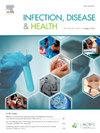Optimizing infection control: Evaluating nurses' knowledge and practices for preventing infections in mechanically ventilated patients
IF 2
Q2 PUBLIC, ENVIRONMENTAL & OCCUPATIONAL HEALTH
引用次数: 0
Abstract
Introduction
Infection control is crucial in healthcare, particularly in intensive care units (ICUs), where patients are at high risk of infection due to mechanical ventilation. Ventilator-associated pneumonia (VAP) is one of the most common hospital-acquired infections in ICUs, leading to increased morbidity, prolonged hospital stays, and elevated healthcare costs. Nurses are essential in implementing infection control measures to prevent these infections. Evaluating their knowledge and practices is key to identifying areas for improvement.
Aim
This study assesses ICU nurses' knowledge and practices regarding infection control, particularly in preventing VAP in mechanically ventilated patients.
Methods
A descriptive observational study was conducted at a governmental Hospital in Cairo, Egypt. Participants were selected using purposive sampling based on their experience and direct care responsibilities. Data were collected using a self-report questionnaire and an observational checklist. The questionnaire assessed knowledge across domains such as infection control principles and VAP prevention, while the checklist evaluated practices like hand hygiene and adherence to VAP bundles.
Results
The study found that 61.2 % of nurses demonstrated satisfactory infection control practices, with hand hygiene showing the highest compliance (81.8 %). However, VAP bundle adherence was low (42.4 %). Knowledge gaps were also identified, especially in VAP prevention and oral care.
Conclusion
The findings suggest a need for targeted educational programs to improve infection control practices among ICU nurses. Enhanced training could address observed gaps in knowledge and practice, particularly in VAP prevention and oral care, ultimately improving patient outcomes.
优化感染控制:评估护士预防机械通气患者感染的知识和实践。
感染控制在医疗保健中至关重要,特别是在重症监护病房(icu),患者因机械通气而感染的风险很高。呼吸机相关性肺炎(VAP)是icu中最常见的医院获得性感染之一,可导致发病率增加、住院时间延长和医疗费用增加。护士在实施感染控制措施以预防这些感染方面至关重要。评估他们的知识和实践是确定需要改进的领域的关键。目的:本研究评估ICU护士在感染控制方面的知识和实践,特别是在预防机械通气患者的VAP方面。方法:在沙特阿拉伯法赫德国王专科医院进行描述性观察研究。参与者根据他们的经验和直接护理责任采用有目的的抽样选择。采用自我报告问卷和观察性检查表收集数据。问卷评估了各个领域的知识,如感染控制原则和VAP预防,而检查表评估了手卫生和遵守VAP包等做法。结果:61.2%的护士表现出满意的感染控制行为,其中手部卫生的依从性最高(81.8%)。然而,VAP包依从性较低(42.4%)。还发现了知识差距,特别是在VAP预防和口腔护理方面。结论:研究结果提示需要有针对性的教育计划来改善ICU护士的感染控制实践。加强培训可以解决在知识和实践方面的差距,特别是在VAP预防和口腔护理方面,最终改善患者的治疗效果。
本文章由计算机程序翻译,如有差异,请以英文原文为准。
求助全文
约1分钟内获得全文
求助全文
来源期刊

Infection Disease & Health
PUBLIC, ENVIRONMENTAL & OCCUPATIONAL HEALTH-
CiteScore
5.70
自引率
5.70%
发文量
40
审稿时长
20 days
期刊介绍:
The journal aims to be a platform for the publication and dissemination of knowledge in the area of infection and disease causing infection in humans. The journal is quarterly and publishes research, reviews, concise communications, commentary and other articles concerned with infection and disease affecting the health of an individual, organisation or population. The original and important articles in the journal investigate, report or discuss infection prevention and control; clinical, social, epidemiological or public health aspects of infectious disease; policy and planning for the control of infections; zoonoses; and vaccination related to disease in human health. Infection, Disease & Health provides a platform for the publication and dissemination of original knowledge at the nexus of the areas infection, Disease and health in a One Health context. One Health recognizes that the health of people is connected to the health of animals and the environment. One Health encourages and advances the collaborative efforts of multiple disciplines-working locally, nationally, and globally-to achieve the best health for people, animals, and our environment. This approach is fundamental because 6 out of every 10 infectious diseases in humans are zoonotic, or spread from animals. We would be expected to report or discuss infection prevention and control; clinical, social, epidemiological or public health aspects of infectious disease; policy and planning for the control of infections; zoonosis; and vaccination related to disease in human health. The Journal seeks to bring together knowledge from all specialties involved in infection research and clinical practice, and present the best work in this ever-changing field. The audience of the journal includes researchers, clinicians, health workers and public policy professionals concerned with infection, disease and health.
 求助内容:
求助内容: 应助结果提醒方式:
应助结果提醒方式:


